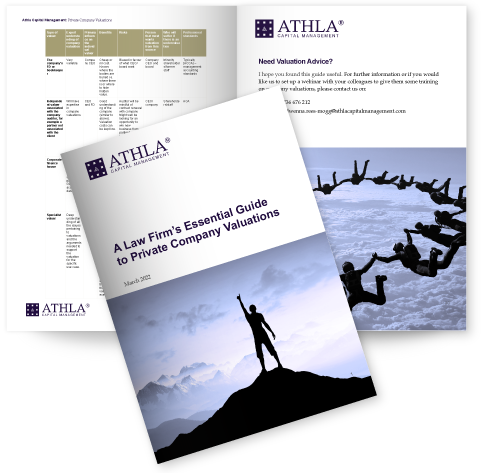Dealing with indirect valuations
December 13, 2022

How to Deal With ‘Indirect’ Valuations For Divorces & VC Fund Investments
There are many scenarios where someone without direct authority over a company might be concerned that the valuation of it, or its shares maybe inaccurate.
Two classic scenarios are in divorce, and also, if you have one or more investments in a venture capital fund.
In a divorce, the value of a shadow report whereby a specialist valuer examines a formal valuation can be incalculable. This is especially true where the individual who has instructed the primary valuation, has a vested interest in making it low.
This could be done by using a lower multiple of EBITDA (lower than others might choose,) so identifying the right multiple is critical, especially when comparable M&A or fundraising datasets are being used.
Relying on historical financial information as the basis for the valuation is another scenario that merits investigation, particularly as Covid-19 typically led to a fall in trading activity.
Examination of current trading performance, and in the case of high growth potential companies, future profitability should be considered in a valuation of a company or shares today.
For investors in venture capital funds, (and similar structures,) fund managers apply IPEV guidelines when valuing portfolio companies.
They will take great care in the exercise and the fund’s auditors will closely examine the principles the fund managers use both generally and for each specific company.
However, in our experience, the devil is always in the detail…
Few private investors in funds really dig deep.
It is important to do proper research into the valuations of the underlying portfolio companies.
Whilst this may be a paper exercise, it does not mean it should be ignored. Where a waterfall capitalisation table is present, the valuations of each share class requires special attention as value for any one share class may not be as simple as the % that share class will receive when the company is sold.
When the management of venture capital assets changes hands, this is a classic moment when the new fund manager will revalue the portfolio.
Much of quoted technology market has fallen by 30-85% in the last year. This trend is now present in the US where much of the private market has also seen valuations drop considerably.
If there is a technology portfolio based in the UK it is vital to dive into the detail.
Some technology sectors continue to boom despite the general downturn. Therefore, there can be a case for a valuation of a company in the right sub-sector to have grown in the last 10 months since the War in Ukraine started the sell-off. However, you cannot assume this is the case.
Emerging sectors, such as AI, need particularly careful consideration.
Of course, if a valuation is going to lead to a transfer of value in cash the issue is critical. However, even where there is no expectation that value will be crystalised, it does not mean that valuations should not be accurate within the context of which they are being prepared.
For example, if an angel investor was to die, the value of his/her portfolio really matters for Inheritance Tax purposes. The Probate Office would want to see that a history of regular accurate valuation will help support the numbers used in the probate forms. As HMRC looks for more and more ways to capture tax, we believe this is an area that will come under increasing scrutiny.
If you have a client who is concerned that the company or share valuations with which they are being presented are too high, or even too low, we would be happy to prepare a shadow valuation report that examines the principles behind the valuation and makes suggestions as to where it could be challenged.


